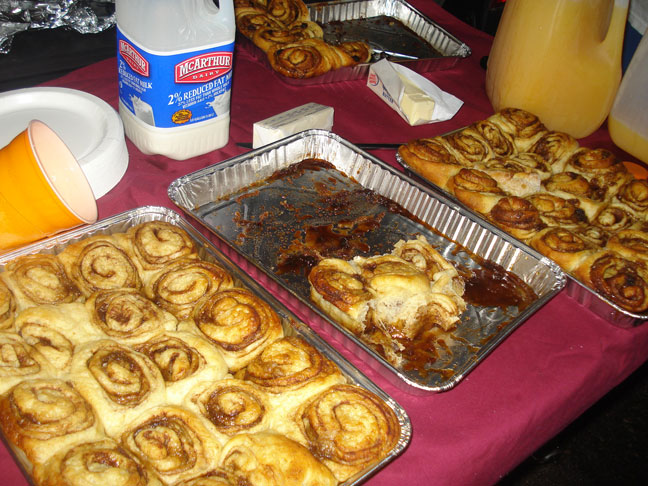Do you ever feel as though the scale doesn’t seem to budge even when you maintain a regular exercise routine? Do you exercise and yet, still somehow continue to gain weight?
Is it possible that you may be stuck in a destructive cycle of eating-exercising-not eating properly? No matter how much time we log on the treadmill, exercise cannot completely compensate for poor eating patterns.
Many of us with the best intentions often forget to pay attention to just how we are fueling our bodies, regardless of how much time we spend exercising. I talk to friends who leave the pool after a grueling two hour swim workout and head directly to Starbucks for a Venti Mocha Frappuccino with whip cream and a blueberry muffin, without thinking anything of the empty calories they are consuming. Diet and exercise, like everything else in our parenting world, is a balancing act. Here are a few common mistakes well-intentioned exercisers make to unknowingly sabotage their weight loss or maintenance plans.
Excess Calories and Sports Drinks
Gatorade, Powerade, and other sugary drinks are fine for demanding endurance workouts, but a quick trip through the gym doesn’t usually warrant hitting the sports drink bottle. As a general rule of thumb, if your workout is less than an hour, or is of moderate intensity, water is perfectly sufficient for your hydration needs. Of course, if you are exercising outdoors in excessive summer temperatures, your body may need the electrolytes a sports drink delivers, regardless of time spent exercising.
Indulging Daily as a Reward for Working Out
We all need to live a little and treat ourselves to the indulgences we enjoy from time to time. Just remember to maintain moderation with treats, despite the spin class you took tonight. Time logged working out is not a license for overindulging in unhealthy fare. Eating a huge bowl of ice cream or half a pan of cinnamon buns post workout will negate much (if not all!) of what you might have accomplished in the gym.

Unaccounted for “Kid Calories”
A bite here or a nibble there adds up over the course of the day. Clearing your kids’ lunch plates and finishing their leftover peanut butter and jelly sandwich crusts and string cheese sticks adds up as calories consumed. Snacking every time your toddler snacks may be too many snacks for you, since her belly is much smaller than yours and she is consuming smaller quantities at each sitting (hence, her need to eat more often). Your kids are still growing and need to meet calorie demands as such, but depending on your activity level, your caloric requirements may be significantly less.
The Energy Bar Trap
Regardless of marketing, many energy bars are simply glorified candy bars with just as much fat and sugar. “Refueling” with a sports bar can pose a risk to your nutrition plan, depending on how many calories you are consuming, as well as the bar’s ingredients. Be sure to read labels and stick with bars that are as close to nature as possible, and lower in sugar. Consider opting for real food as an alternative, such as fruit or nuts. These natural snacks tend to be higher in fiber and will keep you satisfied longer.
Eating Extra Calories Late at Night
I try to stick to the rule of no snacking after seven o’clock. Finish dinner, clean up the kitchen, and then go brush your teeth so you are not tempted to wander back to the pantry and consume unnecessary late night calories. Packing school lunches for the following day can be an easy invitation to snack as you pack. Be aware of your pitfalls and try to plan ahead to avoid them.
The reality is we cannot out train a poor diet. Stay within healthy diet parameters and think of food as fuel for your workout, as well as your daily demands. As a mom, you have the weight of the world resting on your shoulders; take care of yourself by being mindful of your meals and getting adequate exercise that balances calories in versus calories out.




